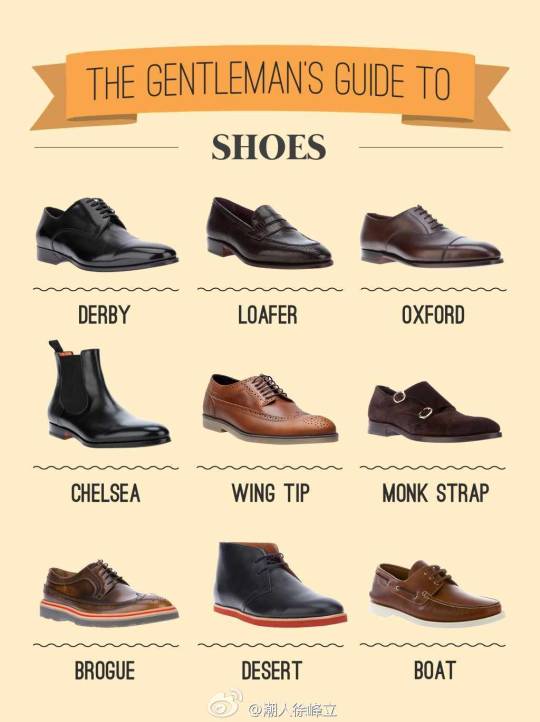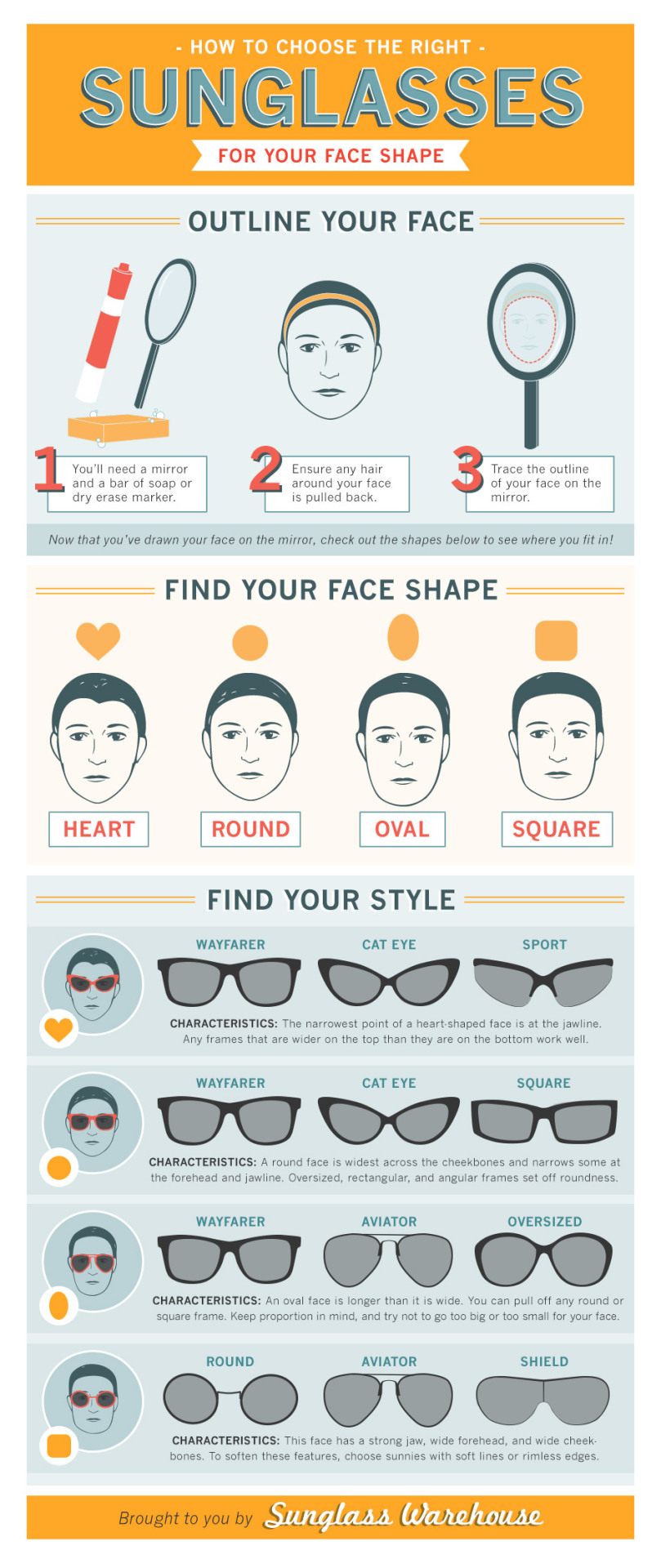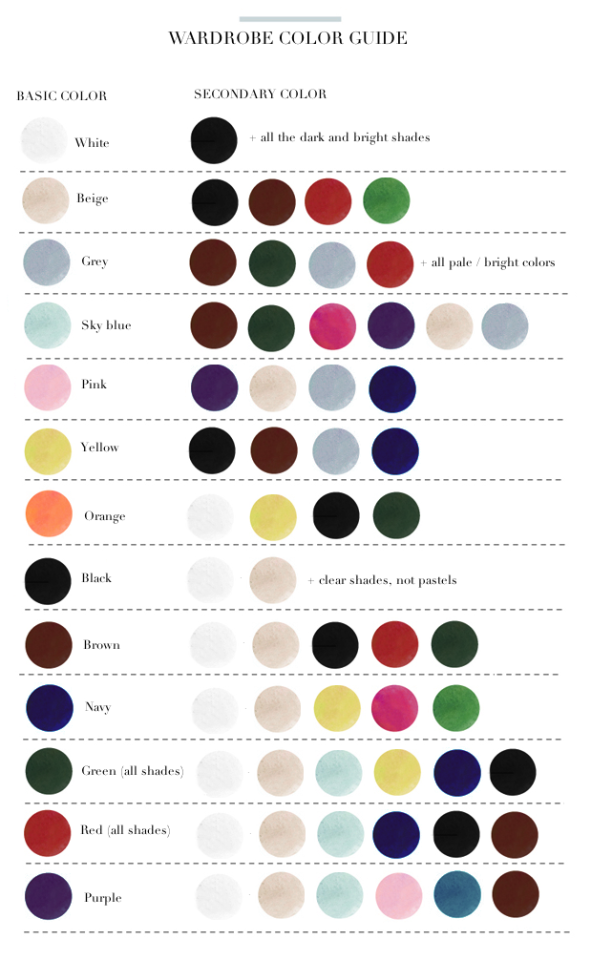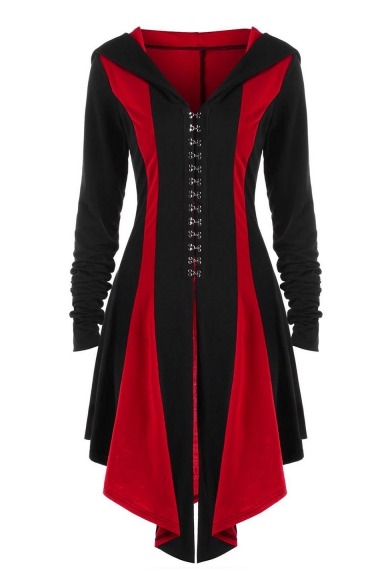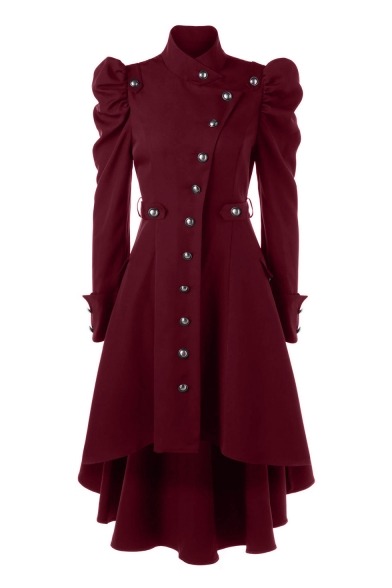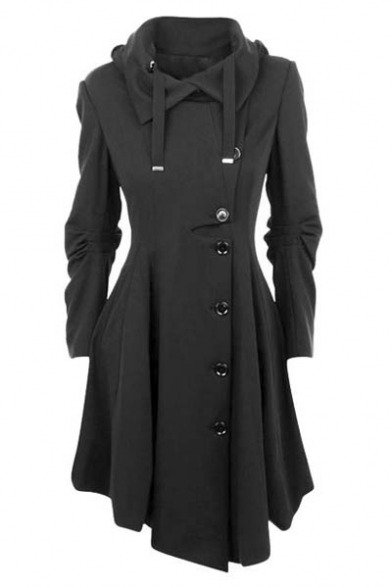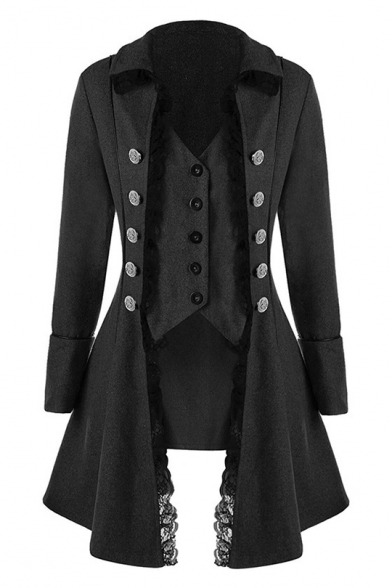Text
Reasons I believe my friend is secretly some kind of deity
1) First time we spoke was a week after the beggining of freshman year she summed up my entire character and most of the events of my life Sherlock style. I asked her how the hell she knew all that. She just shrugged and said she figured out our entire class already.
2) The one time we had religion class instead of ethics she listened to the teacher for a few minutes, laughed and told me:
“Humans have wished to be gods so much they’ve forgotten they have to ability to create them. Imagination has truly suffered from this ‘monotheism’ stuff.”
I was confused and asked her if she was an atheist. She rolled her eyes and said:
“Oh I believe in god alright. I just don’t think the bastard deserves to be worshipped.”
3) Out of nowhere she gave me this advice:
“The only truth a liar ever told was that lies weren’t going to save you. Don’t become the liar who has to pass that wisdom on, because they speak from experience.”
4) To this day, she has one of those old-timey phones with buttons she only uses to ocassionally call someone. When I asked her why she never got a smartphone she got pouty:
“I hate social media. On Facebook they talk a lot but never say anything. If I wanted to listen to people moan about their problems and ask for help they don’t expect I’d listen to their prayers.” (Notice the choice of words)
5) I noticed she was stiff and I offered her a massage since I’m really good at it but when i started kneading her back I swear to this day those were not muscles I felt. I asked her what she did to turn her muscles into rocks covered with a thin layer of skin and she kinda froze then shrugged and said she was just really, really stiff. My hands hurt after ten minutes when I can usually go for an hour. Next time I offered she seemed surprised and laughed. She still has rocks for muscles.
6) We were having a debate over the way neural pathways are formed (I study biology and she forensics) and I jokingly asked if I could have her brain for study when she dies. She laughed.
“Sure, if you find a way to kill me you can have it. I’m actually curious what you’re gonna find.”
7) One time she was tired and miserable and I tried to comfort her. We both have really dark sense of humor so I told her she could scare the dead out of their graves with that glare. She told me the dead can’t come back and I rolled my eyes and said 'obviously’ but she continued:
“When you die you descend to the underworld with nothing to lose. To keep you, they give you something to lose. When you want to return, they will demand it back. That’s why nobody ever leaves. The only way out is to never enter.”
8) One day she just came up to me with a disappointed look on her face. When I asked her what was wrong she was quiet for a few seconds and then just told me:
“Betrayals committed in good intentions are still damning. Just… keep that in mind.” Then she left and didn’t speak to me for three days. I still don’t know what she meant but even three years later I haven’t forgotten it.
9) We were casually sitting on a bench when, out of nowhere, she asked me: “Is it just me or have humans gotten dumber? Or have they always been this stupid and I just haven’t been paying attention?”
10) She asked me if I ever wondered what it was like to die. I said no but told her I would tell her when I found out. I meant it as a ghost joke but she smiled at me and said:
“Great. I’ll wait for you to come back. Maybe you’ll even remember me.”
In conclusion, she is some kind of low-key god and she lost her faith in humanity even before we lost our faith in her but she’s stuck with us because immortality is a bitch.
P.S. I just remembered her name is a variation on 'Eve’. Maybe I should reconsider my atheist status?!
UPDATE (Jan 9, 2019): Since people liked this so much I’m making it a thing. All I have about Eve can be found under #god goes to college
108K notes
·
View notes
Text
Is there a website to look up models or people to draw, with gender, ethnicity, and age filters. (if possible)?
For example if a wanted to make a cartoon character realistic and use a real person for reference or to edit the photo to look like them?
I’ve been just googling white 20s male, black female 40s etc. (can’t find any good references for kids either) and been sifting through the results.
101K notes
·
View notes
Photo

FAMOUS AUTHORS
Classic Bookshelf: This site has put classic novels online, from Charles Dickens to Charlotte Bronte.
The Online Books Page: The University of Pennsylvania hosts this book search and database.
Project Gutenberg: This famous site has over 27,000 free books online.
Page by Page Books: Find books by Sir Arthur Conan Doyle and H.G. Wells, as well as speeches from George W. Bush on this site.
Classic Book Library: Genres here include historical fiction, history, science fiction, mystery, romance and children’s literature, but they’re all classics.
Classic Reader: Here you can read Shakespeare, young adult fiction and more.
Read Print: From George Orwell to Alexandre Dumas to George Eliot to Charles Darwin, this online library is stocked with the best classics.
Planet eBook: Download free classic literature titles here, from Dostoevsky to D.H. Lawrence to Joseph Conrad.
The Spectator Project: Montclair State University’s project features full-text, online versions of The Spectator and The Tatler.
Bibliomania: This site has more than 2,000 classic texts, plus study guides and reference books.
Online Library of Literature: Find full and unabridged texts of classic literature, including the Bronte sisters, Mark Twain and more.
Bartleby: Bartleby has much more than just the classics, but its collection of anthologies and other important novels made it famous.
Fiction.us: Fiction.us has a huge selection of novels, including works by Lewis Carroll, Willa Cather, Sherwood Anderson, Flaubert, George Eliot, F. Scott Fitzgerald and others.
Free Classic Literature: Find British authors like Shakespeare and Sir Arthur Conan Doyle, plus other authors like Jules Verne, Mark Twain, and more.
TEXTBOOKS
Textbook Revolution: Find biology, business, engineering, mathematics and world history textbooks here.
Wikibooks: From cookbooks to the computing department, find instructional and educational materials here.
KnowThis Free Online Textbooks: Get directed to stats textbooks and more.
Online Medical Textbooks: Find books about plastic surgery, anatomy and more here.
Online Science and Math Textbooks: Access biochemistry, chemistry, aeronautics, medical manuals and other textbooks here.
MIT Open Courseware Supplemental Resources: Find free videos, textbooks and more on the subjects of mechanical engineering, mathematics, chemistry and more.
Flat World Knowledge: This innovative site has created an open college textbooks platform that will launch in January 2009.
Free Business Textbooks: Find free books to go along with accounting, economics and other business classes.
Light and Matter: Here you can access open source physics textbooks.
eMedicine: This project from WebMD is continuously updated and has articles and references on surgery, pediatrics and more.
MATH AND SCIENCE
FullBooks.com: This site has “thousands of full-text free books,” including a large amount of scientific essays and books.
Free online textbooks, lecture notes, tutorials and videos on mathematics: NYU links to several free resources for math students.
Online Mathematics Texts: Here you can find online textbooks likeElementary Linear Algebra and Complex Variables.
Science and Engineering Books for free download: These books range in topics from nanotechnology to compressible flow.
FreeScience.info: Find over 1800 math, engineering and science books here.
Free Tech Books: Computer programmers and computer science enthusiasts can find helpful books here.
CHILDREN’S BOOKS
byGosh: Find free illustrated children’s books and stories here.
Munseys: Munseys has nearly 2,000 children’s titles, plus books about religion, biographies and more.
International Children’s Digital Library: Find award-winning books and search by categories like age group, make believe books, true books or picture books.
Lookybook: Access children’s picture books here.
PHILOSOPHY AND RELIGION
Bored.com: Bored.com has music ebooks, cooking ebooks, and over 150 philosophy titles and over 1,000 religion titles.
Ideology.us: Here you’ll find works by Rene Descartes, Sigmund Freud, Karl Marx, David Hume and others.
Free Books on Yoga, Religion and Philosophy: Recent uploads to this site include Practical Lessons in Yoga and Philosophy of Dreams.
The Sociology of Religion: Read this book by Max Weber, here.
Religion eBooks: Read books about the Bible, Christian books, and more.
PLAYS
ReadBookOnline.net: Here you can read plays by Chekhov, Thomas Hardy, Ben Jonson, Shakespeare, Edgar Allan Poe and others.
Plays: Read Pygmalion, Uncle Vanya or The Playboy of the Western World here.
The Complete Works of William Shakespeare: MIT has made available all of Shakespeare’s comedies, tragedies, and histories.
Plays Online: This site catalogs “all the plays [they] know about that are available in full text versions online for free.”
ProPlay: This site has children’s plays, comedies, dramas and musicals.
MODERN FICTION, FANTASY AND ROMANCE
Public Bookshelf: Find romance novels, mysteries and more.
The Internet Book Database of Fiction: This forum features fantasy and graphic novels, anime, J.K. Rowling and more.
Free Online Novels: Here you can find Christian novels, fantasy and graphic novels, adventure books, horror books and more.
Foxglove: This British site has free novels, satire and short stories.
Baen Free Library: Find books by Scott Gier, Keith Laumer and others.
The Road to Romance: This website has books by Patricia Cornwell and other romance novelists.
Get Free Ebooks: This site’s largest collection includes fiction books.
John T. Cullen: Read short stories from John T. Cullen here.
SF and Fantasy Books Online: Books here include Arabian Nights,Aesop’s Fables and more.
Free Novels Online and Free Online Cyber-Books: This list contains mostly fantasy books.
FOREIGN LANGUAGE
Project Laurens Jz Coster: Find Dutch literature here.
ATHENA Textes Francais: Search by author’s name, French books, or books written by other authors but translated into French.
Liber Liber: Download Italian books here. Browse by author, title, or subject.
Biblioteca romaneasca: Find Romanian books on this site.
Bibliolteca Virtual Miguel de Cervantes: Look up authors to find a catalog of their available works on this Spanish site.
KEIMENA: This page is entirely in Greek, but if you’re looking for modern Greek literature, this is the place to access books online.
Proyecto Cervantes: Texas A&M’s Proyecto Cervantes has cataloged Cervantes’ work online.
Corpus Scriptorum Latinorum: Access many Latin texts here.
Project Runeberg: Find Scandinavian literature online here.
Italian Women Writers: This site provides information about Italian women authors and features full-text titles too.
Biblioteca Valenciana: Register to use this database of Catalan and Valencian books.
Ketab Farsi: Access literature and publications in Farsi from this site.
Afghanistan Digital Library: Powered by NYU, the Afghanistan Digital Library has works published between 1870 and 1930.
CELT: CELT stands for “the Corpus of Electronic Texts” features important historical literature and documents.
Projekt Gutenberg-DE: This easy-to-use database of German language texts lets you search by genres and author.
HISTORY AND CULTURE
LibriVox: LibriVox has a good selection of historical fiction.
The Perseus Project: Tufts’ Perseus Digital Library features titles from Ancient Rome and Greece, published in English and original languages.
Access Genealogy: Find literature about Native American history, the Scotch-Irish immigration in the 19th and 20th centuries, and more.
Free History Books: This collection features U.S. history books, including works by Paul Jennings, Sarah Morgan Dawson, Josiah Quincy and others.
Most Popular History Books: Free titles include Seven Days and Seven Nights by Alexander Szegedy and Autobiography of a Female Slave by Martha G. Browne.
RARE BOOKS
Questia: Questia has 5,000 books available for free, including rare books and classics.
ARTS AND ENTERTAINMENT
Books-On-Line: This large collection includes movie scripts, newer works, cookbooks and more.
Chest of Books: This site has a wide range of free books, including gardening and cooking books, home improvement books, craft and hobby books, art books and more.
Free e-Books: Find titles related to beauty and fashion, games, health, drama and more.
2020ok: Categories here include art, graphic design, performing arts, ethnic and national, careers, business and a lot more.
Free Art Books: Find artist books and art books in PDF format here.
Free Web design books: OnlineComputerBooks.com directs you to free web design books.
Free Music Books: Find sheet music, lyrics and books about music here.
Free Fashion Books: Costume and fashion books are linked to the Google Books page.
MYSTERY
MysteryNet: Read free short mystery stories on this site.
TopMystery.com: Read books by Edgar Allan Poe, Sir Arthur Conan Doyle, GK Chesterton and other mystery writers here.
Mystery Books: Read books by Sue Grafton and others.
POETRY
The Literature Network: This site features forums, a copy of The King James Bible, and over 3,000 short stories and poems.
Poetry: This list includes “The Raven,” “O Captain! My Captain!” and “The Ballad of Bonnie and Clyde.”
Poem Hunter: Find free poems, lyrics and quotations on this site.
Famous Poetry Online: Read limericks, love poetry, and poems by Robert Browning, Emily Dickinson, John Donne, Lord Byron and others.
Google Poetry: Google Books has a large selection of poetry, fromThe Canterbury Tales to Beowulf to Walt Whitman.
QuotesandPoem.com: Read poems by Maya Angelou, William Blake, Sylvia Plath and more.
CompleteClassics.com: Rudyard Kipling, Allen Ginsberg and Alfred Lord Tennyson are all featured here.
PinkPoem.com: On this site, you can download free poetry ebooks.
MISC
Banned Books: Here you can follow links of banned books to their full text online.
World eBook Library: This monstrous collection includes classics, encyclopedias, children’s books and a lot more.
DailyLit: DailyLit has everything from Moby Dick to the recent phenomenon, Skinny Bitch.
A Celebration of Women Writers: The University of Pennsylvania’s page for women writers includes Newbery winners.
Free Online Novels: These novels are fully online and range from romance to religious fiction to historical fiction.
ManyBooks.net: Download mysteries and other books for your iPhone or eBook reader here.
Authorama: Books here are pulled from Google Books and more. You’ll find history books, novels and more.
Prize-winning books online: Use this directory to connect to full-text copies of Newbery winners, Nobel Prize winners and Pulitzer winners.
555K notes
·
View notes
Text
Editing Checklist
Editing Software:
StyleWriter 4 is fantastic. It’s an add-on for Microsoft word and has a 14-day trial period. It goes through your text, picks out “glue words”, misspellings, long sentences, homonyms, passive tense, shows your reading grade level, and more.
Editminion *FREE* checks for adverbs, weak words, passive voice, cliches, and homonyms among other things.
Pro Writing Aid is another online editor. It is mostly free, but offers more features if you pay.
AutoCrit offers free analysis for under 500 words, otherwise you have to pay for more text and more editing features.
Paper Rater offers a free service for editing, but it is designed for essays.
Formatting Checklist: This follows the general guide of formatting a manuscript in Microsoft word. However, some literary agents and editors have their own requirements.
Under the paragraph option, change the special indentation to first line at .5”. Change to document to double spaced.
There should be no spaces between paragraphs.
When showing a scene break, center # on a blank line.
Font should be easy to read. Courier New and Times New Roman are preferred at size 12.
All margins should be 1”.
Start chapters on a new page and put the chapter title 1/3 down the page. Write the chapter like so: CHAPTER ONE - CHAPTER TITLE. Press return 4 - 6 times before starting the text of the chapter.
For the header, put YOUR NAME/BOOK TITLE/PAGE NUMBER in the upper right-hand corner. Start this header on the first page of the first chapter.
The cover page of your manuscript should have your name, word count, and contact information in the upper left-hand corner.
The title on the cover page should be in all caps. Your name should be underneath in all caps. If you use a pen name, write YOUR REAL NAME (WRITING AS PEN NAME).
At the end of the manuscript, start a new page and write END.
Self-Editing Checklist:
Spelling:
If you are using Microsoft word for your word processor, use the spell check. After that, go through the manuscript line by line to make sure everything is spelled right. You may have used “form” instead of “from” and skipped it because Microsoft word did not see it as misspelled.
Printing out your work or viewing it in another way (such as a pdf on an ereader) helps find these mistakes.
Beta readers can find what you missed as well.
Use editing software to check homonyms or look up a list of homonyms and find them in your document using ctrl + f. Check these words to make sure you used the right spelling.
Grammar and Style:
First use Microsoft word’s grammar checker, but be aware that it is not always right. Check grammar girl if you are unsure.
For dialogue, you can always pick up a professionally published book and look at how the dialogue tags are used, where commas are placed, and when other punctuation is used.
If you’re in school and your English teacher isn’t too busy, have them take a look at it.
Look out for prepositions. Most of the time, you can omit these words and the sentence will still make sense. Beginner writers use a lot of these in their writing and it slows the flow.
Check for adverbs. You’d be surprised at how many you use in your writing, sometimes up to five a page. Using a few in narration is okay, but only a few. Delete adverbs you find, especially those that end in “-ly”, and rewrite the sentences in necessary.
Delete gerunds and forms of “to be” if writing in past tense. Instead of “were running”, write “ran”.
Check subject-verb agreement.
Use correct dialogue tags. People don’t bark their words. They shout.
Two digit numbers should be written as words (twenty-seven) while numbers with more than two digits should be written with numbers (123).
Avoid passive verbs.
Vary sentence length.
Show with the five senses rather than telling.
Most of the time, you can delete the word “that”.
Avoid using “unique” or “significant” words too often.
Consistency:
Make sure all your font is the same size and type.
Make sure you have no plot holes. Use the comment feature in Microsoft Word to track these plots.
Make sure your time line is consistent.
The tone should fit the scene.
There should be one POV per scene. Unless you’re a brilliant writer and can pull off third person omniscient.
Verb tense should be consistent.
Keep track of the details you release of people, places, and things. The reader will remember if in one chapter you say your protagonist has blue eyes and in another you say green.
Pacing:
The whole book should flow in and out of fast paced scenes to keep your reader interested and slow scenes to give them a break.
The middle should not “sag”.
Sentences should flow smoothly.
Plot:
Keep track of all your plots and sub-plots. Readers will remember them.
There should be a beginning, middle, and end.
Is the initial problem at the beginning of the manuscript?
There should be at least one antagonist. This does no have to be a person.
Is there enough conflict?
There should be a resolution.
All scenes should have something to do with plot.
The climax should be the most exciting part.
Character:
The protagonist should change by the end of the book.
Make sure all characters who come in contact with one another have some kind of relationship, whether good or bad.
Characters must have motivation for everything.
The protagonist must want something right from the start of the conflict.
The protagonist needs to be captivating. The readers wants to root for the protagonist. This does not mean the protagonist needs to be likable all the time.
The readers likes to relate to characters. Make sure your characters are diverse enough that readers can identify with one.
Know who your protagonist is. The main character is not always the same. For example, Nick in The Great Gatsby is the main character, but Jay Gatsby is the protagonist. This is important to know while writing your query letter.
If you can delete a minor character from a scene and nothing changes, then delete that character.
Sometimes you can make two minor characters one without losing any essential parts of the story. If you can, do this.
All characters react and act.
Each character has his or her own life.
Dialogue:
Dialogue should be believable. Read it out loud.
Don’t go overboard with phonetic spelling if a character has an accent.
Dialogue should be informal and natural. It does not have to be grammatically correct.
Prose:
Avoid purple prose. I’ve never met anyone with “emerald eyes” or “hair of fire” (except for the Flame Princess).
Don’t use too many adjectives.
Avoid cliches.
Other:
Don’t info dump. Pace information through dialogue and narration.
The first sentence should spark interest, or at least the first three. If it does, the first paragraph should be the same. And the first 250 words. The goal is to get the reader past the first page.
Let your story rest. When you’re ready to edit, start at the end. Writers tend to get lazy at the end of their story whether they are writing it for the first time or revising it after revising the rest of the story.
Make sure your manuscript is within range for your genre’s word count.
11K notes
·
View notes
Text
Writing a character who becomes severely malnourished/dehydrated/sleep-deprived?
Here’s what you’ll need to know! Learn all about the wonders of the human body and add scientifically-accurate drama to your stories.
MALNOURISHMENT
DEATH: average - 21 days (3 weeks), max ever recorded - 70 days (2.3 months)
6 HOURS: grouchiness and hunger due to lack of glucose.
24 HOURS - 48 HOURS: hunger very apparent; pains in stomach; body has entered ketosis and is using fatty acids as energy.
72 HOURS+: muscles begin to get broken down for energy.
You will become: increasingly depressed, irritable, hysteric apathetic; decline in concentration, comprehension and judgement; social isolation and withdrawal; possible self-harm.
If your character doesn’t eat for 5 consecutive days, they are at risk of Refeeding Syndrome. This is extremely dangerous and can be fatal.
recommended reading:
The Minnesota Starvation Experiment
Psychology of starvation based on the above experiment.
DEHYDRATION
DEATH: average 3 days; some live 8 - 10 days
for the calculations: TWV = total water volume in body; average adult loses 2.5 litres of water per day.
Assuming that your character does not eat, drink or absorb any moisture.
9 HOURS/2% TWV: thirst, discomfort, dry skin, loss of appetite; 50% loss of performance for athletes; elevated body temperature, rapid heartbeat, fatigue, dizziness when standing, decreased fluid secretion (sweat, urination, tears, etc).
24 HOURS/6% TWV: sleepiness, severe headaches, nausea, tingling in limbs.
36 - 72 HOURS/ 6 - 15% TWV: no urination, seizures, muscle spasms, shriveled skin, fainting, vision dimming, delirium.
72 HOURS+/15% TWV+: Organ failure.
recommended reading:
dehydration on the psychology wiki.
SLEEP DEPRIVATION
DEATH: not known, but can stay awake for 11 days; max chronic sleep deprivation ever recorded (until death) - 6 months.
NOTE: This does not mean you can stay awake for 6 months. It means you can survive that long with chronic sleep deprivation - going days without sleep and then sleeping once or twice.
24 HOURS: mental ability impairment of someone who has blood-alcohol content of 0.10%; everything is worse - emotional control, memory, attention, decision-making, hand-eye coordination.
36 HOURS: hormonal spikes everywhere; losing time; lack of motivation; head buzzing like you’re dehydrated.
48 HOURS: microsleep, regardless of what you’re doing (you fall asleep for 1-30 seconds and then become disorientated);
72 HOURS+: say goodbye to higher mental processes like decision-making and planning. Also, say good bye to saying goodbye because even simple conversations are hard.
80 HOURS+: … and hello, hallucinations!
recommended reading:
this article of a soldier’s experience with sleep deprivation.
Eleven Days Awake; The Experiment.
56K notes
·
View notes
Text
Writing Advice; a resource list
Hey! Recently I’ve noticed an uptick in outsourced writing advice on Tumblr, whether this is just on my feed or not, I thought I would put up a good list of writing advice and reference blogs on Tumblr.
https://scriptautistic.tumblr.com/post/169184357621/the-scriptx-family-as-of-01012018
A complete list of the current Script Family. All well moderated, with in-depth, informed advice, with over 20 members on a variety of subjects.
https://scriptmedic.tumblr.com/thescriptxfamily
Previously complete list of the script family, however! This also includes a list of the friends of the Script Family, all excellent writing advice blogs. Including, @howtofightwrite and, @writingwithcolor
There’s also a rather lacking number of resources for writing fanfiction, which is a genre all it’s own. While normal writing reference blogs and advice do great, sometimes fanfiction comes with it’s own special brand of issues.
https://writingtipsff.tumblr.com/
A blog dedicated to the reblogging of all the advice they can get their hands on, usually pertaining and in reference to fanfiction.
https://lets-get-fictional.tumblr.com/
A great mix of writing, editing, and characterization advice. Usually focusing specifically on fanfiction, but not always!
https://randomfanficwritingtips.tumblr.com/
Primarily an ask blog, great resource for reference, and any specific questions you may have.
I hope this helpful, good luck in your endeavors!
P.S. any additional writing advice blog suggestions are welcome!
53 notes
·
View notes
Text
A beautifully dark and mysterious man who is in all ways evil except that he’s unalterably in love with the main character.
229 notes
·
View notes
Text
An honest boy who’s forced to become a pirate when his sailor’s ship is taken over by pirates.
51 notes
·
View notes
Note
Could you help me with worldbuilding? I dont know where to start.
Hey! World building is a wonderful thing, but it’s also HUGE and there are so many things to consider. There are also different levels of world development, and surface things and deeper things you might not exactly see in the book, but you may see results of. Now, I’m going to ask a million questions for you to think about, but I don’t want you to feel overwhelmed. Rather, they’re things to consider, and things you might not have ever thought of, I don’t know. As you read my questions, it might be helpful to think of a specific real world place you know a lot about and answer the questions using that place as your example. That way you can see that any real world place actually is made up of all these factors.
Second, when developing a world, it’s always a good idea to have a real place as a reference, or a mixture of places. For example, one of my worlds is based off of Ancient Rome, so I look at Roman clothing and architecture and other aspects of Rome and use that as my example, but since it’s my world I’m free to make whatever changes I want. I have another world based off of Haiti, so again, culture and clothing and the environment of Haiti inspires my world building, and I can reference actual Haitian culture when trying to brainstorm ideas. With that in mind, here are my questions for you, divided by topic:
Biomes: This is first, since you mentioned it, and it’s something great to think about.
what is the weather/temperature like in different places in your world?
Are there particular disaster dangers here? Such as hurricanes, forest fires, earthquakes, tornadoes?
What animal life is there? How much of that is native and how much is imported? Are there differences between wild animals vs domestic animals?
What plants live there? What food? How much is native and how much is imported? Imported from where?
What are the natural landscapes and land formations? If you have two different landscapes/biomes, does their proximity to each other make sense? The US has deserts, mountains, beaches, forests, but everything makes sense by where it is on the globe. You won’t have a desert and a frozen tundra right next to each other, unless it’s like a video game or something haha
Architecture:
what sort of materials are available where they live? Are there expensive materials and more affordable materials?
What is the style of the buildings? Do government buildings have Greek style pillars? Do they have stone castles and wood cottages like the Middle Ages? What color are they? Are homes big, with multiple bedrooms or do people live in one-room homes?
What is the roof style? Slanted? Flat? Domes?
Is there a difference in architecture between rural areas and big populated areas?
Food:
what types of food do they eat? What diet? What foods are available to them? Do they live in a poor place? Then they could eat cheap foods like rice and beans. Do they live by the ocean? Then probably they’ll eat lots of fish!
What are their meals? Do they eat three meals a day? Two meals a day? Five meals a day? When? In Spain, they have a huge meal at midday and everyone takes a nap, then they eat a light dinner of fruits and such at 9:00 or 10:00 at night! Hobbits in LOTR seem to eat every two hours
What seasonings do they use? Is it flavorful food or bland food? Do they eat lots of sweet food or more salty foods?
Culture: Now this is a huge one, so I’ll break it down
Countries should have separate and distinct cultures. When developing countries, you’ll just take all these questions and answer them for the different countries and cultures. However, if they are close by, certain things might be similar.
Language: what languages do they speak? Does it have a name?
Social beliefs:
What do they believe as a society? Are they more traditional or not?
What is a man’s role in society? Are they the primary providers, expected to work and provide for their wives and children? Are they thought of as higher than women, or are the equal? Is there a separation between men and women in their upbringings? What skills/characteristics are thought important for a man? Is traditional masculinity something that is desired?
What is a woman’s role in society? Are they equal to men or considered second-rate citizens? Are they expected to homemakers and nurturers of children, or are they allowed/encouraged to pursue careers? Are they allowed on the military? If women truly ARE equal to men in all things and encouraged to do things that take them away from home, make sure you address who handles domestic tasks/when? For example, in our society, men and women are becoming more and more equal. However, if there is a couple that wants one parent to be a homemaker while the other works, it’s almost always the women. Is that the case in your world?
What is a child’s role in society? Are they treated like children, allowed to have a childhood, or are they expected to work right away and help out their families? Are they taken seriously or laughed at? Are their child protection laws? Do they go to school? Are they allowed to talk in front of adults or is it more of the old “do not speak unless spoken to” type deal?
What are the views on sexuality in this world? Is homosexuality something that is condemned or is it something that is totally acceptable? If it is something that is totally acceptable, you need to make sure you have ample homosexual representation, and can’t just make it where the default is a man and woman who are married while the woman stays home, but no one has a problem with the ONE gay person. Are certain cultures more progressive than other cultures? What about transgender issues?
What is the society’s views on the family? Is the family central to society? Is the society centered around families, or centered further around community? Do people tend to get married? Is that the norm? Do people live together before marrying? Is sex outside of marriage a taboo or does no one really care? How are single mothers treated in society?
Religion: what are the dominating religions within your world? Is there tension between the religions? Are there histories of wars, like the Crusades in real life? Are there different variations of the same religious beliefs, like in Christianity how there’s protestants, Catholics, Mormons, etc who all believe in Jesus as their deity? Does everyone believe in the religion, or at least act like it? Is being religious required to be a respectable member of society? What does it mean to be devout (to they attend religious meetings weekly/follow religious commandments?) Who leads the religion? Do they live in one area, but lead the religion for the whole world? (think the pope; centered in Europe but leads the church for the whole world). Is the religion actually true?
Is modesty important? What does it mean? Is it just for women or is it important for men? Does the definition of modesty change from place to place? If so, an outside who comes and sees something “revealing” to him but that isn’t revealing according to their culture, might react.
Clothing/style:
What do people wear? What colors? Look at modesty question.
What materials are available to them? What colors of dye?
Do hotter places wear more revealing clothing while colder places are more bundled up?
Is jewelry common? What types? Is it considered worldly? Religious? Are multiple piercings common?
Tattoos? Are they common? Are they look down upon or do they mark someone as wise?
Hairstyles: Are men supposed to have short hair or long hair? Clean shaven or shaven? Are women supposed to have their hair pulled back or is it okay for their hair to be down? What about hair dye? Is that common, and is it looked down upon or totally acceptable? Is NON-dyed hair unrespectable?
Hats? Do classy people wear huge hats like Great Britain?
Shoes? Are nice shoes a symbol of wealth? Do people wear boots or sandals? Or do they wear no shoes?
Formal wear vs casual? What underwear to people wear?
Music:
This is something that is very often overlooked in writing because you can’t WRITE music. However, music plays a huge part in many different cultures so you should know what types of music people listen to and make.
What instruments are used? Is music important in society? Is music instrumental or vocal or both? Is it something of high culture or low culture? Are their different types of music (religious, classy, sensual, taboo)
What are the beats of the music? Is dancing a big deal among average folks? Is dancing proper, organized flirting (Victorian Era) or more sensual (like night clubs) or something that just everyone does, knows how to do, and has fun doing (like Latin American countries), or is dancing forbidden altogether?
Races:
What is the relationship between different races? Who is more dominant in the world in general? Is mixing races common? What is the status of mixed children? Are certain places more melting pots than other places? For example, a big city is more likely to have lots of diversity than rural areas.
Technology/Time period:
What is the technology level? If it’s a world based off a time period, reference the inventions and technology level of that time period.
Are new things being invented throughout the novel? Any breakthrough inventions?
Politics:
What is the political system of your world? Early democracy where only male landowners can vote and only high class people can run for office? Is it a republic? Socialism? Communism? Kingdom? Feudalism?
What role do religious leaders play in the world stage of politics?
What is the feeling/status of politics on the international stage? Is there a big, powerful country trying to conquer and push their cultural ideas on others? Is there a “United Nations” type thing among richer, more developed countries? Do we have alliances in that world? Do big countries have colonies on other land masses?
What is the evolution of their politics? How did they get where they are today?
Entertainment:
What do people do for fun? Are there sports people are into? (consider jousting, fencing, discus, fights to the death like the Colosseum). Is the theater a big deal, or looked down upon? Dances? Concerts? Hunting? Reading?
Games for children - do they play outside, like hopscotch?
Which of these entertainment ideas are for people of certain classes, like high or low classes?
Example: I lived in the Dominican Republic for two years, and everywhere you go you’d see groups of five-eight men gathered around, playing dominoes on the side of the streets, and they would get loud and super into it. Many people also participated in cock fighting, or “how loud can you get” contests, where they’d drive around and blast speakers as loud as humanly possible. The loudest speaker wins. Lots of people would also go to nightclubs. Think about unique and different ideas for entertainment in your world.
Jobs/Economy:
How rich are your world’s different countries? Is there a large homeless population? Is there a particular area where the homeless live? What percent of the people live in poverty? Are the majority of people living in the “middle class?”
What are common jobs? What jobs are guaranteed more money (consider our culture - a doctor or CEO will make much more than a teacher, or a musician or a fast food worker).
Can a person born to a poor family get a good job and become super rich?
Make sure the jobs make sense within the economy. Example, capitalism is run by big corporations, communism by gov, feudalism by the king and his royalty and the nobles.
Education:
Does everyone go to school? Until when? Are they homeschooled? Do rich kids have personal tutors or governesses? Do most people know how to read, or only people belonging to higher classes? If poor people don’t study, why/ What do they do instead of study (do they work? Help out their parents on the farm or the family store?)
What about higher education? Do people study at a university level, and if so, what types of jobs can they get?
Military:
This could be important if you have a militaristic world. How is the military organized, what are they used for, what are the ranks, and what is the social standing of people of high ranks? Can just anyone get a high rank or do you have to be born into a high class?
Does the military double as law enforcement, or is the military separate from the police force?
Magic:
Magic system development is its own process, but make sure to develop a unique and well-defined magic system. Once that’s developed, explore how that fixes into the world.
How does magic impact the world? What roles does it have/what is it used for? Do they NOT have construction workers because magic makers do the job?
What is the social status of magic users? High? Are they low because they’re powerful and people are scared of them?
Country traditions/holidays:
Are there any festivals or holidays? Feel free to steal/combine ideas from festivals/real life holidays
Do they celebrate an Independence day? If so, independence from who?
What is a marriage ceremony like? (what traditions? Is it religious? Does the man have to make a marriage bed? Do they throw rice? Have a particular food? Are wedding cakes a thing?)
Are there special ages that have a celebration with them? Like a quinceanera or bar mitzvah? Or some other coming of age ceremony?
Any religious holidays? What is the history of this holiday? (Christmas and Easter are religious, celebrating the birth and death of Christ.) Is it solely religious or has it become more secular, like Christmas? Does everyone celebrate it, or just people of certain religions?
I think I’ll leave it at that for now. Let me know if that helps! Remember, when creating a world, do NOT be afraid to reference real world places, whether that’s other cultures that are still around today, or time periods in history, like the Victorian Era, Middle Ages, the 20s, Ancient Greece, Ancient Egypt, Persia, Asia - reference real world places. As you do, your work will become more authentic. That’s not to say you can’t come up with your own stuff, but don’t be afraid to reference the real world, steal parts, and combine aspects of multiple different cultures.
108 notes
·
View notes
Photo

Text: My mother told me stories of the little town where fog was thick, where shadow people traded at the market, and days could last for months.
208 notes
·
View notes
Text
Tips for fight scenes
If you get punched in the nose your eyes will water, a lot, even if it didn’t really hurt
Your body follows your head, your head gets pushed one way and your body will want to go that way
Getting hit in the stomach isn’t good, it hurts, getting hit in the diaphragm is worse. Causes your lungs to kinda spasm and make it hard to breathe (diaphragm is between stomach and chest)
When fighting a larger person they will have an easier time forcing you back
The jaw is the knockout button. Hit it hard enough and down for the count
Back of the head is very vulnerable, can cause serious damage if hit there
Kidney punches. They hurt. A lot.
People with experience will try to be where they are comfortable. A wrestler will try to get their opponent on the ground, a boxer will stay on their feet, etc.
Easiest counter to a kick is to get closer to whoever is throwing it, then they won’t have enough room for it to be effective
If you want realism, avoid fancy, flashy moves. They’re less practical and easier to counter.
47K notes
·
View notes
Photo

Text: There was a door in the back garden wall that led nowhere. Then one day, I saw a boy come through it.
134 notes
·
View notes
Text
That moment when
a character enters the room to a casual greeting, but the smiles of their friends slowly become horrified when they realize something is horribly wrong
OR
a character that has been missing or absent comes back, much to the relief of the characters, but the relief only lasts a moment before they see the extent of the character’s injuries as they waver on their feet
281 notes
·
View notes
Text
CHARACTER FACIAL EXPRESSIONS (WRITING REFERENCE)
EYES/BROWS
his eyes widened
her eyes went round
her eyelids drooped
his eyes narrowed
his eyes lit up
his eyes darted
he squinted
she blinked
her eyes twinkled
his eyes gleamed
her eyes sparkled
his eyes flashed
his eyes glinted
his eyes burned with…
her eyes blazed with…
her eyes sparked with…
her eyes flickered with…
_____ glowed in his eyes
the corners of his eyes crinkled
she rolled her eyes
he looked heavenward
she glanced up to the ceiling
she winked
tears filled her eyes
his eyes welled up
her eyes swam with tears
his eyes flooded with tears
her eyes were wet
his eyes glistened
tears shimmered in her eyes
tears shone in his eyes
her eyes were glossy
he was fighting back tears
tears ran down her cheeks
his eyes closed
she squeezed her eyes shut
he shut his eyes
his lashes fluttered
she batted her lashes
his brows knitted
her forehead creased
his forehead furrowed
her forehead puckered
a line appeared between her brows
his brows drew together
her brows snapped together
his eyebrows rose
she raised a brow
he lifted an eyebrow
his eyebrows waggled
she gave him a once-over
he sized her up
her eyes bored into him
she took in the sight of…
he glared
she peered
he gazed
she glanced
he stared
she scrutinized
he studied
she gaped
he observed
she surveyed
he gawked
he leered
his pupils (were) dilated
her pupils were huge
his pupils flared
NOSE
her nose crinkled
his nose wrinkled
she sneered
his nostrils flared
she stuck her nose in the air
he sniffed
she sniffled
MOUTH
she smiled
he smirked
she grinned
he simpered
she beamed
her mouth curved into a smile
the corners of his mouth turned up
the corner of her mouth quirked up
a corner of his mouth lifted
his mouth twitched
he gave a half-smile
she gave a lopsided grin
his mouth twisted
he plastered a smile on his face
she forced a smile
he faked a smile
her smile faded
his smile slipped
he pursed his lips
she pouted
his mouth snapped shut
her mouth set in a hard line
he pressed his lips together
she bit her lip
he drew his lower lip between his teeth
she nibbled on her bottom lip
he chewed on his bottom lip
his jaw set
her jaw clenched
his jaw tightened
a muscle in her jaw twitched
he ground his jaw
he snarled/his lips drew back in a snarl
her mouth fell open
his jaw dropped
her jaw went slack
he gritted his teeth
she gnashed her teeth
her lower lip trembled
his lower lip quivered
SKIN
she paled
he blanched
she went white
the color drained out of his face
his face reddened
her cheeks turned pink
his face flushed
she blushed
he turned red
she turned scarlet
he turned crimson
a flush crept up her face
WHOLE FACE, ETC.
he screwed up his face
she scrunched up her face
he grimaced
she winced
she gave him a dirty look
he frowned
she scowled
he glowered
her whole face lit up
she brightened
his face went blank
her face contorted
his face twisted
her expression closed up
his expression dulled
her expression hardened
she went poker-faced
a vein popped out in his neck
awe transformed his face
fear crossed her face
sadness clouded his features
terror overtook his face
recognition dawned on her face
SOURCE
82K notes
·
View notes







